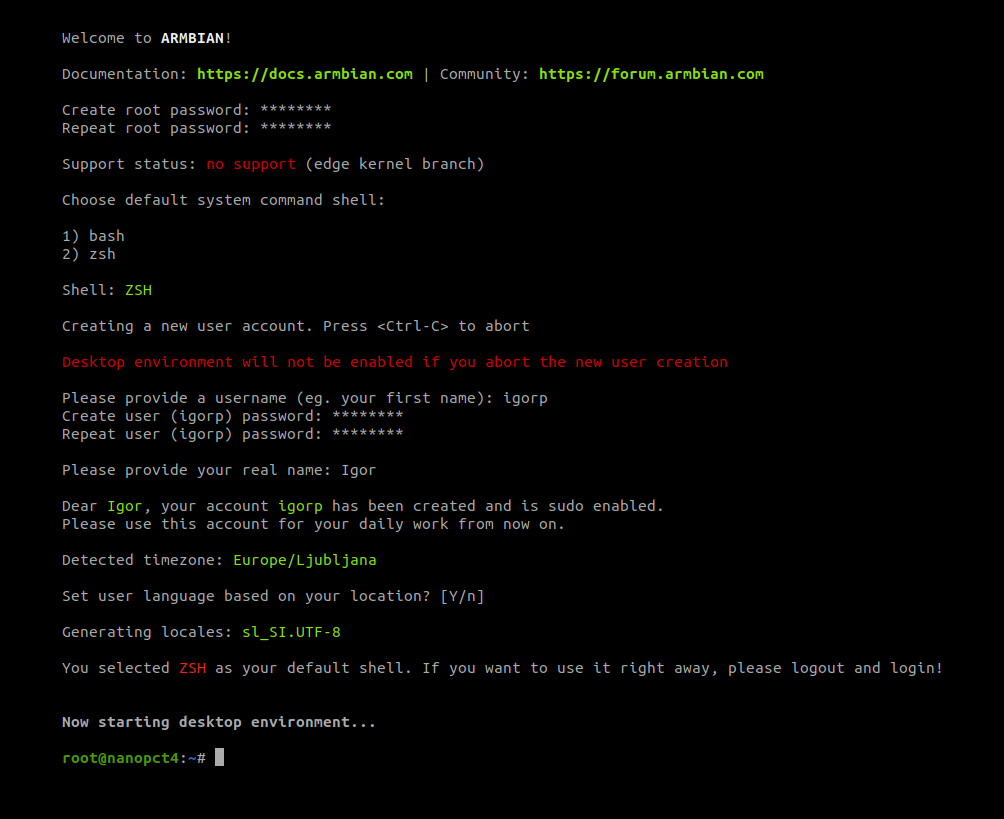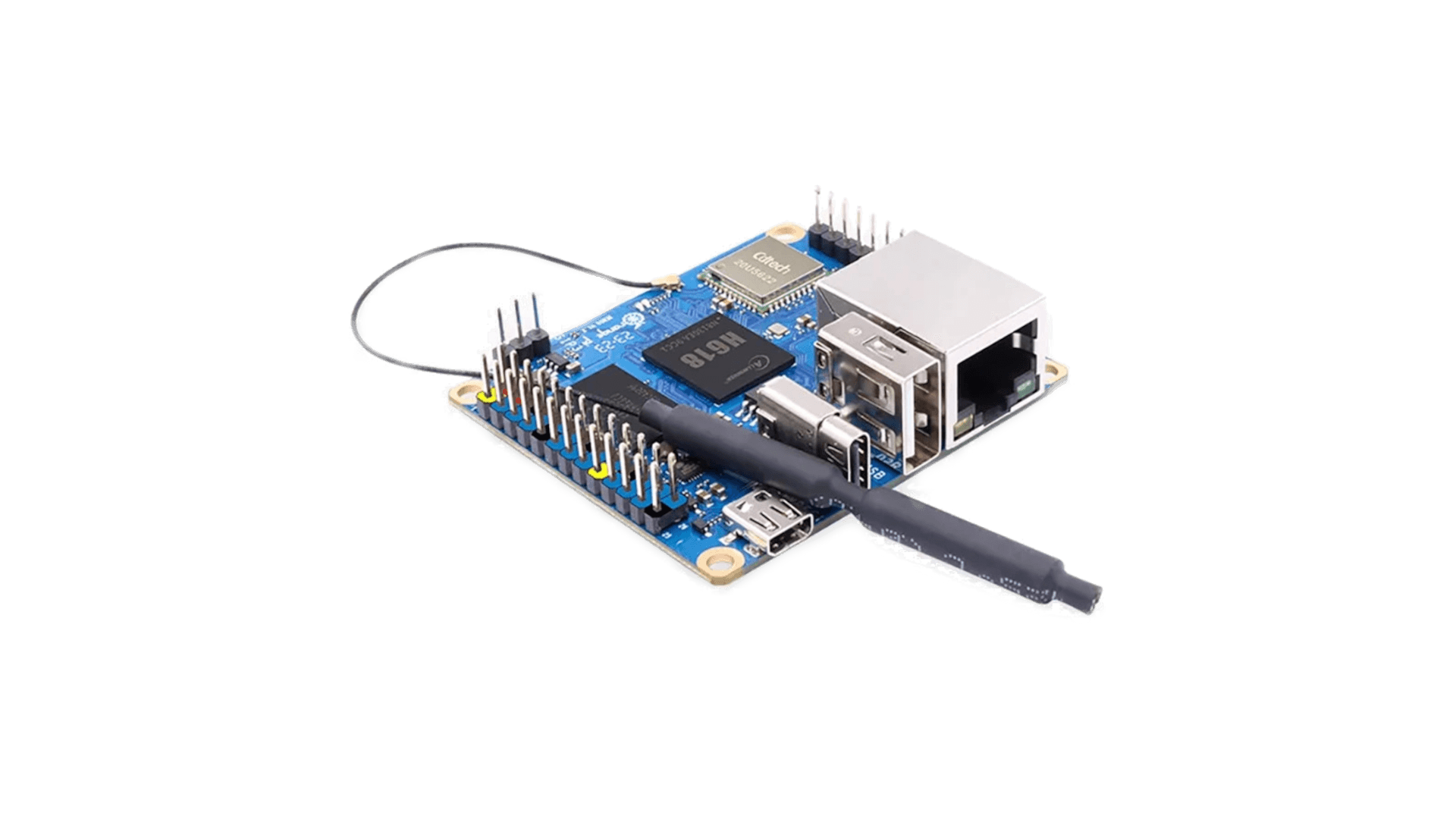What Does Community Support Mean?
Community maintained boards are not officially supported by the Armbian project. These boards are maintained (or not maintained) by community members (like you). These builds are provided by the Armbian project as a service to the community. They are automatically generated and untested!- Help by contributing improvements to this board (Contribution guide)
- Standard Support and Community Maintained Criteria (Support Criteria)
- Help other users by participating in our forums
The 26 pin headers on Orange Pi Zero3 provides the following interfaces:-
- 3 I2C
- 2 UARTS
- 2 PWM
- 1 SPDIF
- 1 I2S
- and 1 SPI with 2 CS pins.

The pwm, spdif and i2s support is not there in kernel yet and hence overlays for them are not yet available. We have added overlays for i2c and uart. The spidev1_0 and spidev1_1 needs some editing and will be fixed in the future. When using the overlays, user should make sure they don’t enable overlay for features that use the same pin as this can cause conflict and either only one of the conflicting overlays or none of conflicting overlays will work. Its easy to fix it though as one can just disable it again from armbian-config.
Different images? Missing features? -> Download SDK Looking for compatible accessories? Want to participate in development?
Desktop images with Armbian Linux v6.6
Build Date: Oct 14, 2024
| Distro | Variant | Extensions | Torrent | Integrity | Size | |||||
| Gnome | SHA | ASC | 1.1 GB | |||||||
| * Desktops are very simple and minimal but containing standard features such as Chromium, Firefox browser, Office tools etc. | ||||||||||
Minimal/IOT images with Armbian Linux v6.6
Build Date: Oct 14, 2024
| Distro | Variant | Extensions | Torrent | Integrity | Size | |||||
| Minimal / IOT | SHA | ASC | 230.2 MB | |||||||
| * Minimal images have very small footprint. They come only with essential packages and build-in systemd-networkd. They are optimised for automation and production deployments. | ||||||||||
Dedicated applications images with Armbian Linux v6.6
Build Date: Oct 23, 2024
| Distro | Application | Torrent | Integrity | Size | ||||||
| Home Assistant | SHA | ASC | 305 MB | |||||||
| * 3rd party unofficial applications deployment made with official Armbian build framework. Application support is not provided by Armbian team, but you are welcome to use our community forums for support. | ||||||||||
Specifications
* Specifications differ from hardware revision, model and software support level
FAQs
- check previous images from archive
- join community forums
Simple
BASH or ZSH shell, standard Debian/Ubuntu utilities. Features can be adjusted with menu-driven utility. Login is possible via serial, HDMI or SSH.
Universal
Minimal, server or Desktop. We work with XFCE, Gnome and Cinnamon but more is possible to build: Mate, KDE, Budgie, Deepin, i3, …
Light
No bloatware or spyware. Special utilities are completely optional. Suitable for newcomers and professionals.
Optimized
Distributed images are optimized for flash media (SD/eMMC/SSD) and compacted to real data size.
Fast
Armbian is optimized on kernel and userspace level. ZRAM & ZSWAP support, browser profile memory caching, garbage commit delay.
Secure
Security level can be adjusted with the armbian-config. OS is reviewed by professionals within the community.
Supported
Maintainers and community have deep understanding how HW work. We are seniors with 30+ years of experience in Linux + embedded Linux.
Open
Armbian provides open source build framework to build a distribution of optimised Linux hardware interface for armhf, aarch64 and x86.
We provide a selection of images that fits hardware best. If you need different image – use build framework and make whatever you need. Build framework relies on Debian and Ubuntu packages – you can build any combination – stable, old stable or rolling release.
Minimal images have very small footprint. They come only with essential packages and build-in systemd-networkd while CLI server images have Network Manager based networking, armbian-config utilities, option to select ZSH as default shell.
Make sure you have a good & reliable boot media (SD card / USB key) and a proper power supply. Archives can be flashed with Etcher (all OS) directly.
Insert the SD card into the slot, connect a cable to your network if possible or a display and power your board. (First) boot (with DHCP) takes a bit longer.

Support is provided in one of two ways:
- Free support is provided via general project search engine, documentation, community forums or IRC/Discord. Keep in mind this is mostly provided by our awesome community members in a best effort manner and therefore there are no guaranteed solutions.
- For commercial or prioritised assistance:
- book a an hour of professional consultation,
- consider becoming a project partner.
- Reach us out at https://armbian.com/contact,


